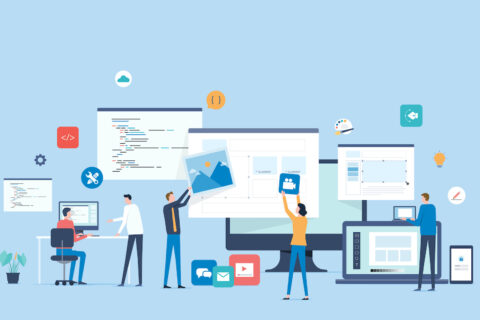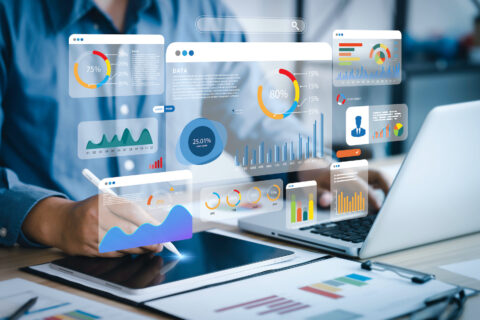If you’re running a small business it’s important to take your online privacy and security seriously. VPN technology, a virtual private network, is one of the best ways to start by protecting your privacy online and maintaining data security.
Pew Research reports, “86% of internet users have taken steps online to remove or mask their digital footprints, but many say they would like to do more or are unaware of tools they could use.” With rising privacy concerns and cybersecurity threats many individuals and entrepreneurs want to improve their security while browsing online from multiple devices.
If privacy is important to you, one of your first steps is to set up a password manager which enables you to use stronger passwords. Use unique passwords on all your accounts. No pet’s names, no birthdays. Long passwords — and a different one on everything (with two-factor authentication that allows a website or app to send you a text to double-check it’s really you logging on).
Next, it’s time to use more secure messaging services and consider what is, perhaps, the most important tool in your online browsing arsenal: a VPN.
Increase your privacy and security online
VPNs, or virtual private networks, are essential for one powerful reason: A failure to use a VPN leaves you extremely exposed when you’re online.
What is a VPN?
A VPN is essentially a private tunnel you can access when using public internet connections at home or the office. When you connect to the internet using a VPN, your data is encrypted and directed through the VPN and then to and from websites you visit. Meanwhile, VPNs mask your identity by changing your IP address. If you choose a VPN provider that has VPN server address exit points in countries other than your own country, your location is also disguised. This is useful in a number of ways, and allows you to view content abroad that is only available in your home country.
Why do I need a VPN?
When you want to add a robust layer of privacy and security to your online activity you can utilize a VPN. This may be a regular need depending on your industry, location in the world, and data protection needs.
A VPN is also necessary when you’re traveling abroad and unsure about the integrity of your internet connections or when access is completely blocked. For example, Internet users in China are restricted from accessing social media services such as Twitter and Facebook because of China’s Great Firewall.

If you find yourself in China with a need to access Google services, news sites and social networks you’ll need a VPN to jump the country’s “firewall” and avoid their online censorship. Additionally, you may have trouble accessing your favorite streaming services (e.g., Netflix and BBC iPlayer) if you are outside of the U.S. or the UK, respectively.
Perhaps you simply want more online anonymity and keeping your location unknown is a matter of principle. Many online users are becoming increasingly concerned about their online privacy in the wake of the Federal Communications Commission regulator roll backs on net neutrality.
Politics aside, ask yourself the following questions:
-
Do you trust your ISP (internet service provider) to maintain the integrity of your online privacy and security?
-
Are you certain they will handle your data in ways that you wouldn’t disapprove of?
-
Are you okay with your ISP sharing your online activity with third parties such as advertisers or government agencies?
If the answer is a resounding “no” then a VPN is indispensable.
When should I use a VPN?
You’ve done it many times before: stepped into a local coffee spot, settled into a cozy spot and logged on to their free Wi-Fi. Once online, you visit your favorite social media accounts, bank accounts, cloud apps with important customer data – all on an unsecured Wi-Fi channel.

And coffee shops aren’t the only area where you are exposed – the airport, gym, etc. and none of these access points are protecting your privacy online. Along the way a considerable amount of personal and business information is made available online. Recovering from identity theft is a long and arduous process. One you’re better off to avoid.
How to use a VPN
Fortunately, VPN technology has become a lot easier to use in recent years. If you’re tech savvy, a lightweight VPN client allows you to manually load configuration files.
However, if you’re a beginner a majority of VPN service providers offer standalone software that does all of the heavy lifting (i.e. configurations). You simply install the software or app on your device, create a strong password, log in to your account – and browse online with an added layer of security and peace of mind.
Which VPN should I use?
There are a plethora of VPN services in the market, both free and paid. But keep in mind, you get what you pay for – avoid free VPNs. When it comes to internet services, if you’re not paying for it, then you’re the product.
That said, the best way to judge the effectiveness of a VPN service is to test their features under the circumstances you’ll be using it. If you’d rather avoid the hassle, you can rely on well-established VPN experts with dedicated teams that take the time to test numerous VPNs under every conceivable circumstance.
The experts at VPNbase, for instance, rely on user feedback, test numerous VPNs and share reviews on VPNs that deliver exceptional services on an array of purposes, such as streaming geo-blocked content, gaming, browsing in countries with sophisticated surveillance used by oppressive regimes, etc.
Online security, privacy and anonymity
The availability of VPN services is on the rise as online users start to care more deeply about protecting their data. Online privacy and security in the wake of the FCC’s net neutrality abolition, Facebook’s Cambridge Analytica data scandal and ongoing notices of data breaches that are up by 75% in the past two years.
If you’re ready to take control of your privacy, security and anonymity online, it’s time to choose a VPN. Read VPN service reviews, understand the features and make an informed choice. Finally, once you get your VPN, remember to always use it. The point of acquiring a powerful tool is to put it to good use.
© YFS Magazine. All Rights Reserved. Copying prohibited. All material is protected by U.S. and international copyright laws. Unauthorized reproduction or distribution of this material is prohibited. Sharing of this material under Attribution-NonCommercial-NoDerivatives 4.0 International terms, listed here, is permitted.













